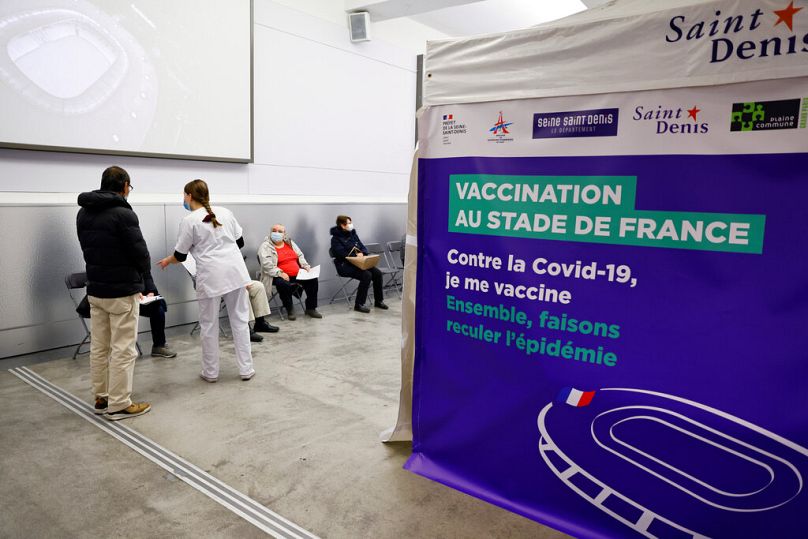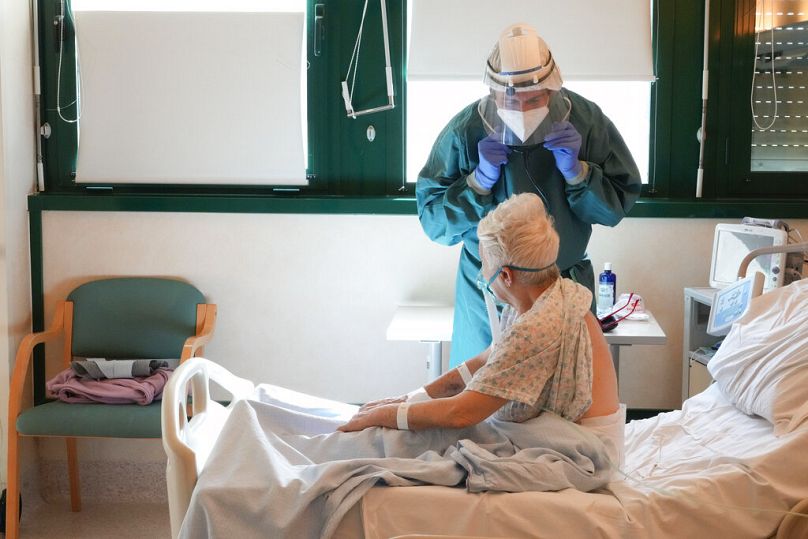As we step into October, collaboration between governments, health authorities, and industry will continue to play a crucial role in ensuring that each individual has a choice when it comes to protecting their health, Chantal Friebertshäuser writes.
Winter is nearly upon us, and the anticipated increase in COVID-19 cases comes with it.
This year, XBB sublineages, including XBB.1.5 and XBB.1.16 and the highly mutated variant BA.2.86, are driving the spread across Europe and leading to an increase in hospitalisations.
Even though increases in COVID-19 cases are hardly new, vulnerable populations, such as those who are immunocompromised or the elderly, are at a higher risk of severe disease.
In the face of this growing concern, it is important to ensure a diversified supply of vaccines to mitigate supply and enable vaccine choice.
Why are updated vaccines so important?
The World Health Organization (WHO) determined that the ancestral strain and related variants are no longer circulating in humans.
To ensure updated vaccines provide the most robust immune response against the dominant circulating variants, regulators and global public health agencies have recommended that COVID-19 vaccines be updated to a monovalent XBB.1.5 composition.
Health authorities are vigilantly monitoring emerging variants, with some governments accelerating COVID-19 vaccination campaigns due to their potential to break through protective immunity generated from previous vaccination or infection.
The emergence of BA.2.86 and the growing prevalence of the EG.5 and FL1.5.1 variants underscores the need to provide updated COVID-19 vaccines. By doing so, we can effectively help reduce severe disease and hospitalisations.
Recognising the significance of the situation, the WHO has urged countries to continue surveillance and sequencing of COVID-19 cases. This proactive approach enables us to closely monitor the risk and severity these strains pose to public health.
Comprehensive protection and long COVID concerns
Prevention through preparedness lies at the heart of our work against COVID-19 in Europe and beyond to ensure comprehensive protection.
Parallel to concerns about severe disease and hospitalisation, the WHO estimates that 36 million people across the EU/EEA region may have developed long COVID since the beginning of the pandemic.
That means that about 1 in 30 Europeans may experience persistent symptoms like sleep disturbances, chronic fatigue, headaches, and forgetfulness, making it challenging to resume everyday life.
Given this, governments, health organisations, and the public must remain vigilant as respiratory illnesses like COVID-19 spread during this time of year.
In addition to scientific evidence supporting vaccine efficacy, the predicted surge in cases this season emphasises the importance of vaccine availability across the EU member states.
Member states need access to a diversified supply of COVID-19 vaccines so that healthcare professionals and the general public can make informed choices based on the latest scientific and real-world evidence.
Alongside vaccine choice, it is also important to provide healthcare professionals with access to different presentations, such as single-dose vials, which can limit waste compared to multi-dose vials.
Embracing collaboration in keeping us safe
At Moderna, our commitment to public health remains stronger than ever, and mRNA technology has been instrumental in our fight against emerging strains.
The scalability and flexibility of the mRNA platform are foundational in responding to the ever-evolving virus.
As we step into October, collaboration between governments, health authorities, and industry will continue to play a crucial role in meeting the needs of the public and ensuring that each individual has a choice when it comes to protecting their health.
The tireless work behind the scenes to develop new vaccines highlights the dedication and expertise of scientists and researchers who strive to keep us safe as we face COVID-19.
Chantal Friebertshäuser serves as Senior Vice President for Europe, the Middle East, Australia, and Canada at Moderna.
At Euronews, we believe all views matter. Contact us at view@euronews.com to send pitches or submissions and be part of the conversation.













